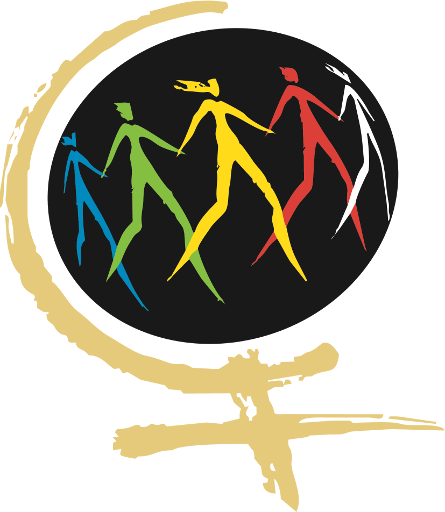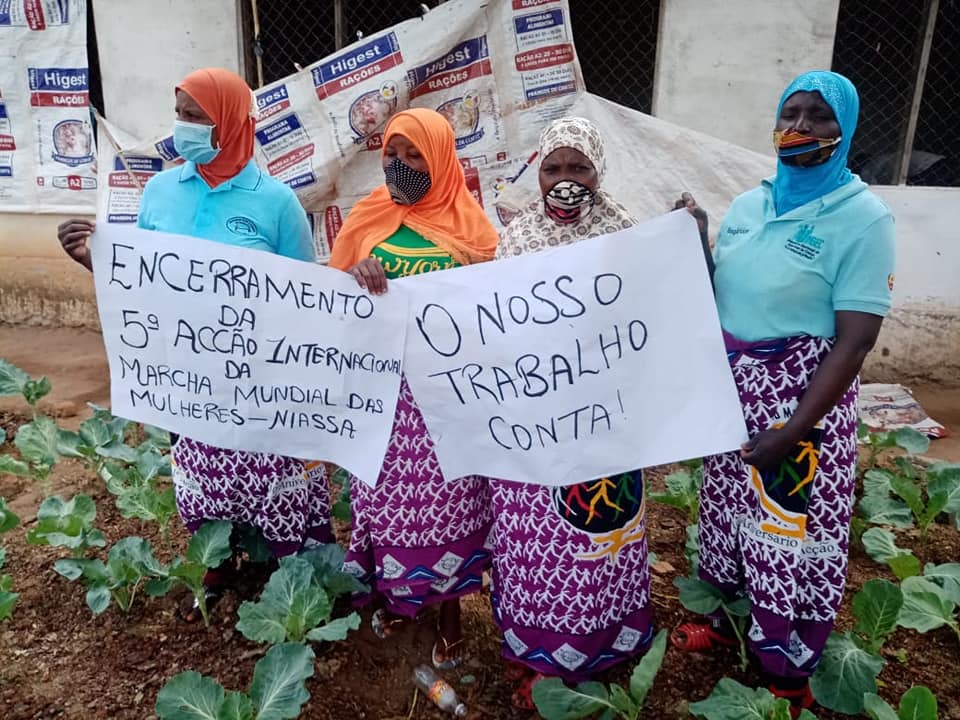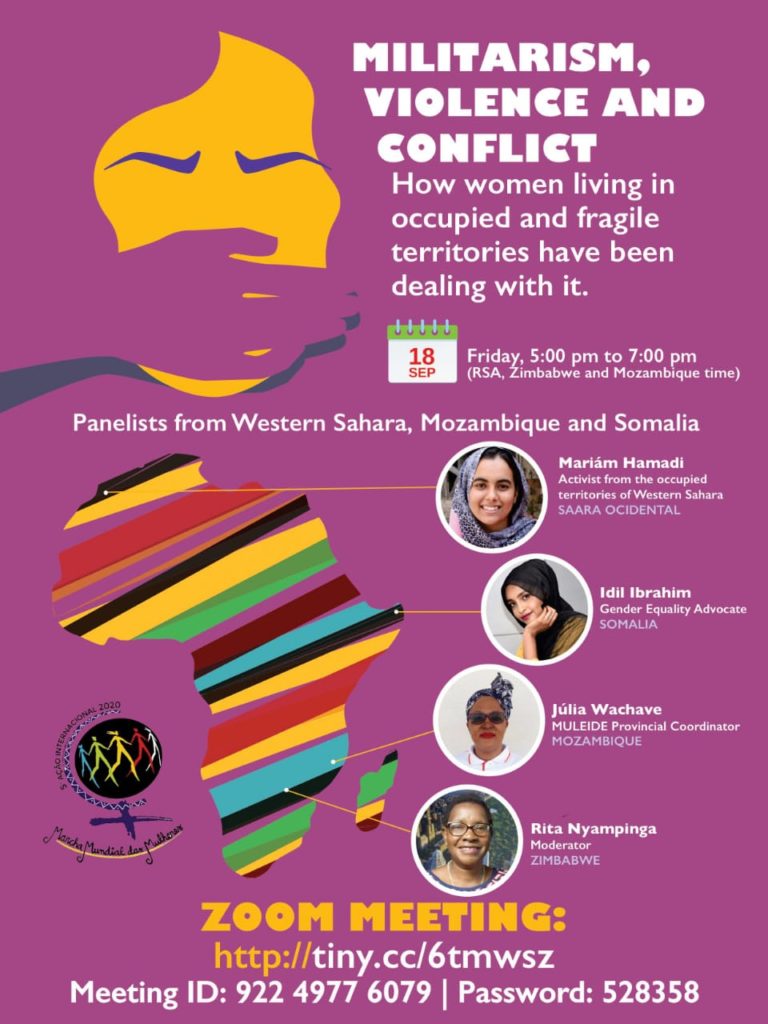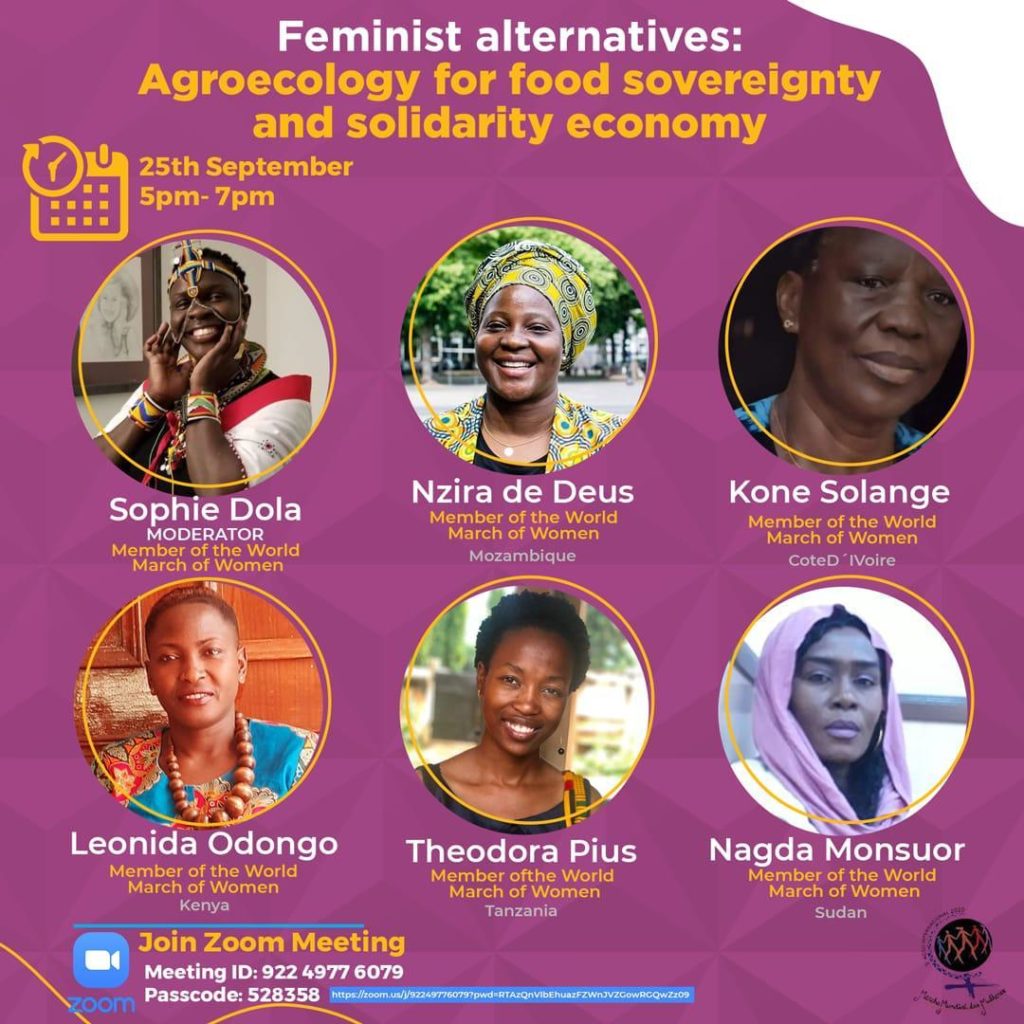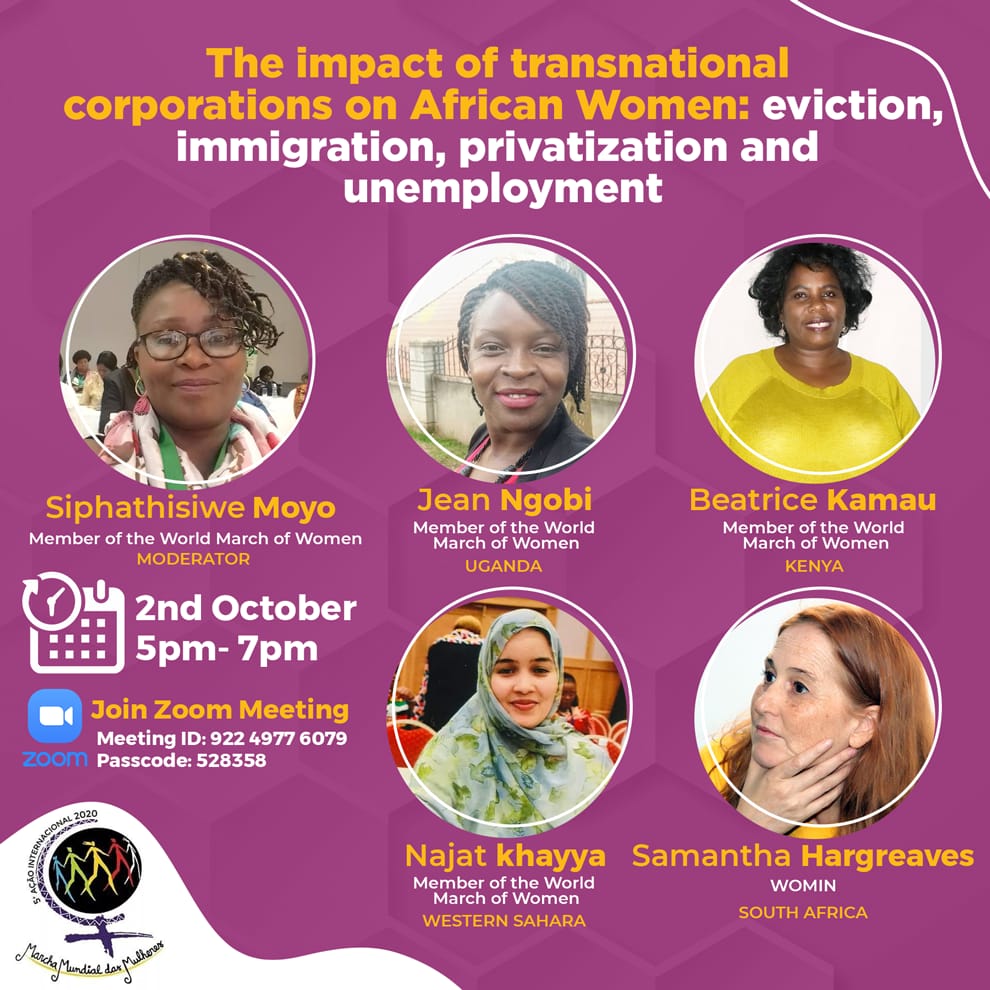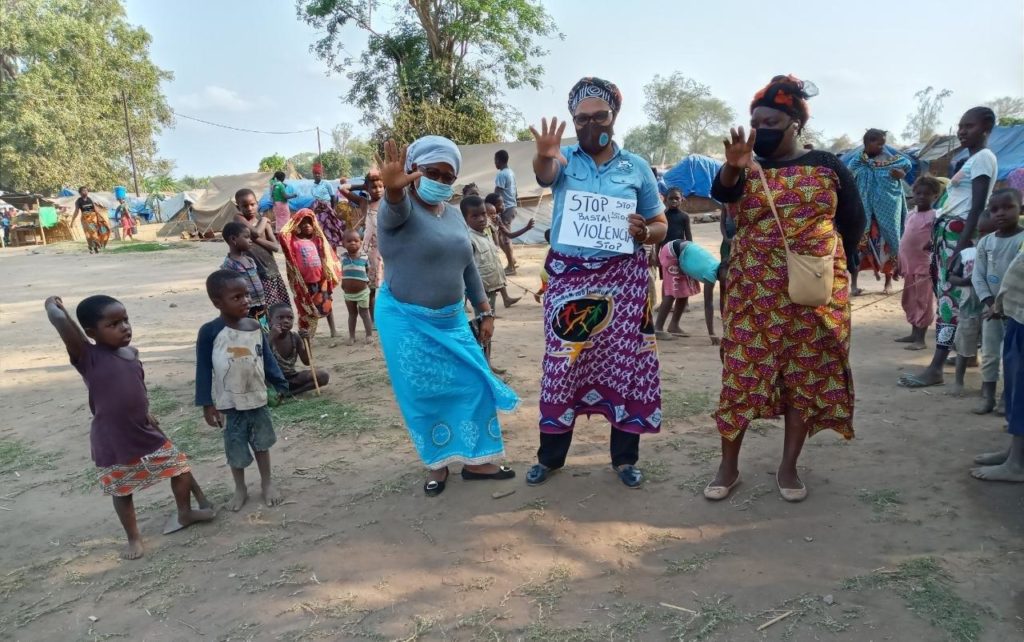
We resist to live, we march to transform!
This is the page about the activities of the Africa region at the closing of the 5th International Action of the World March of Women.
Here you will see the documents that resulted from the debates, workshops, conversations in the countries and territories of the region in the process of the 5th International Action. Also the actions in the networks, streets and fields carried out by the national coordinating bodies at the Closing Week. Some materials will be published only in their original language.
Preparing the closing week
The organization in Africa started long before the closing week. The WMW in Africa held three webinars in the region to discuss the lives of women in occupied and fragile territories; feminist alternatives as agroecology for food sovereignty and solidarity economy; and the impact of transnational corporations on the lives of african women.
Declaration of october 12, 2020 of the World March of Women – Francophone Africa
“We African women; Malian, Burkinabe, Algerian, Beninese, Ivorian, Togolese, Mauritanian, Guinean, Congolese, Tunisian, Saharawi and Nigerian women; let’s say STOP! to our connection through hunger and poverty, STOP! to our connection through poisons and sickness and ENOUGH! to neocolonialism and neoliberalism which exploit us as raw material.”
Women meet and close the 5th International Action in several provinces of Mozambique
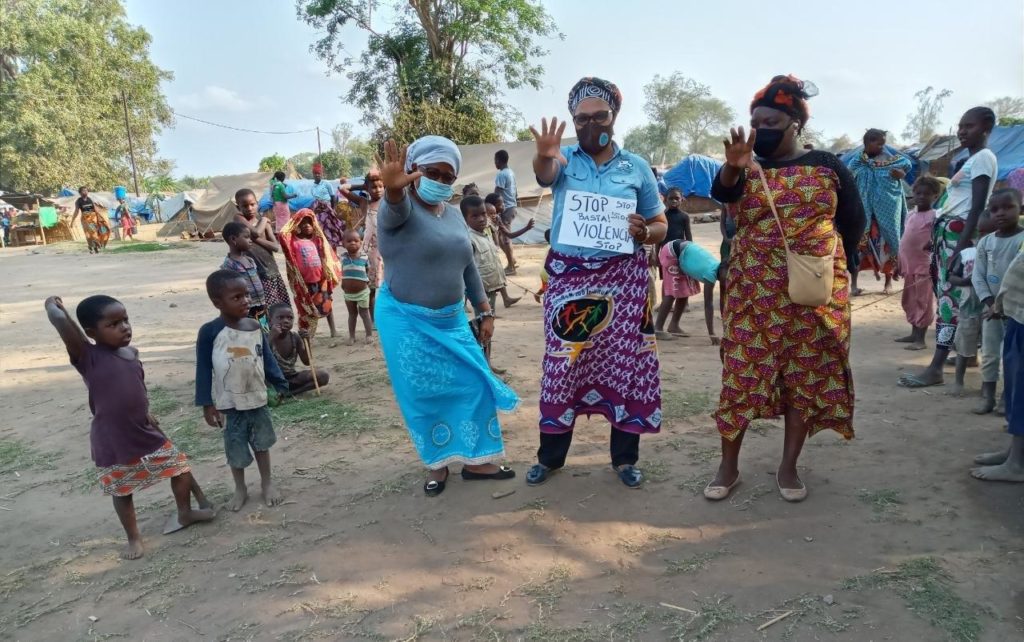
cabo delgado 
Gaza 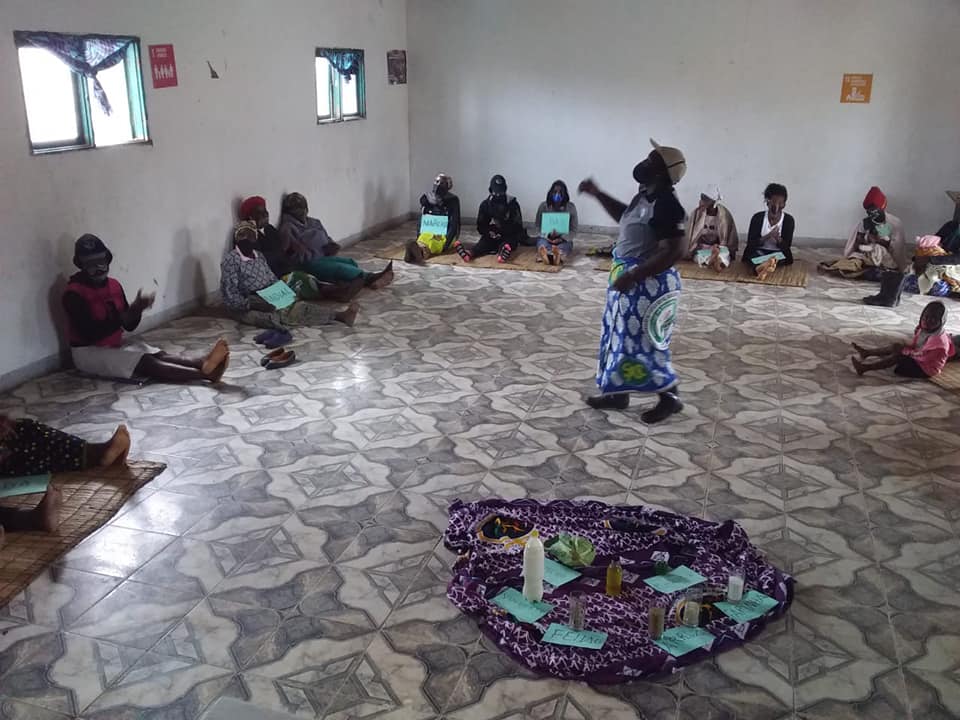
Gaza 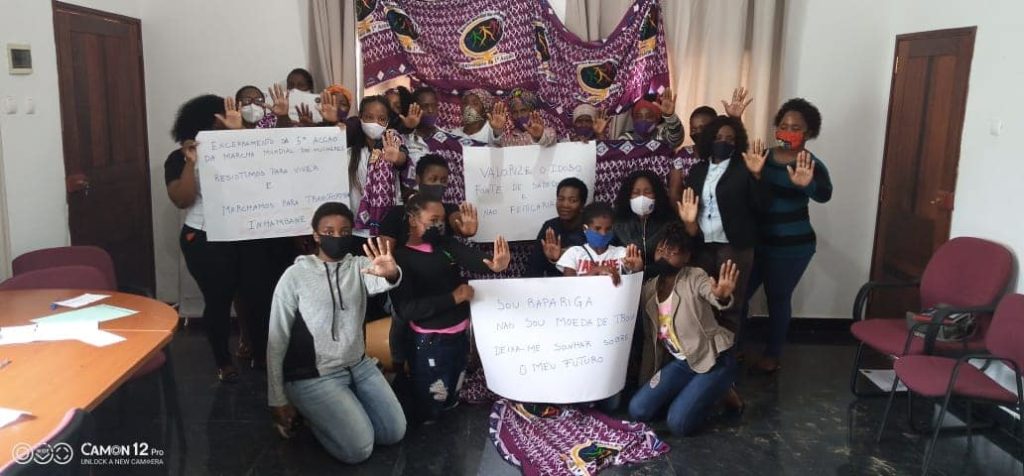
Inhambane 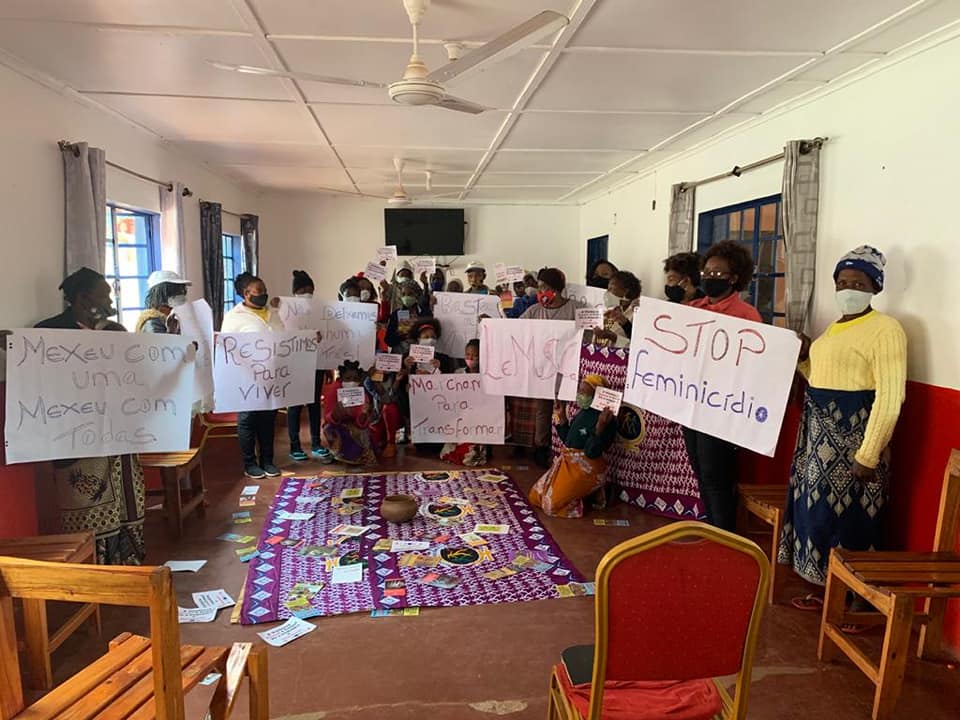
Manica 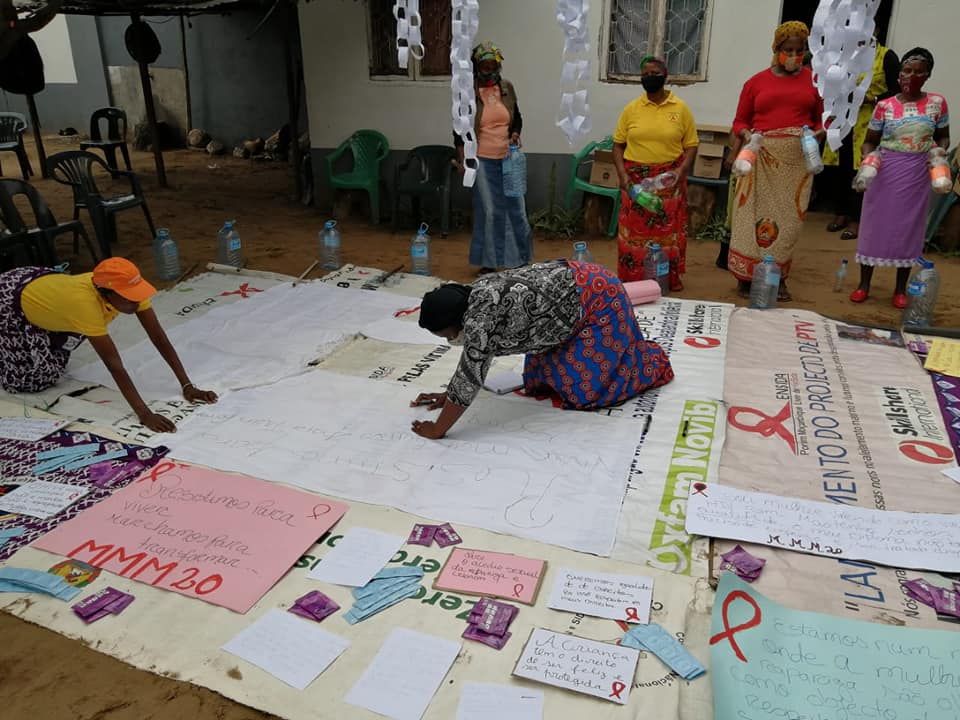
Maputo 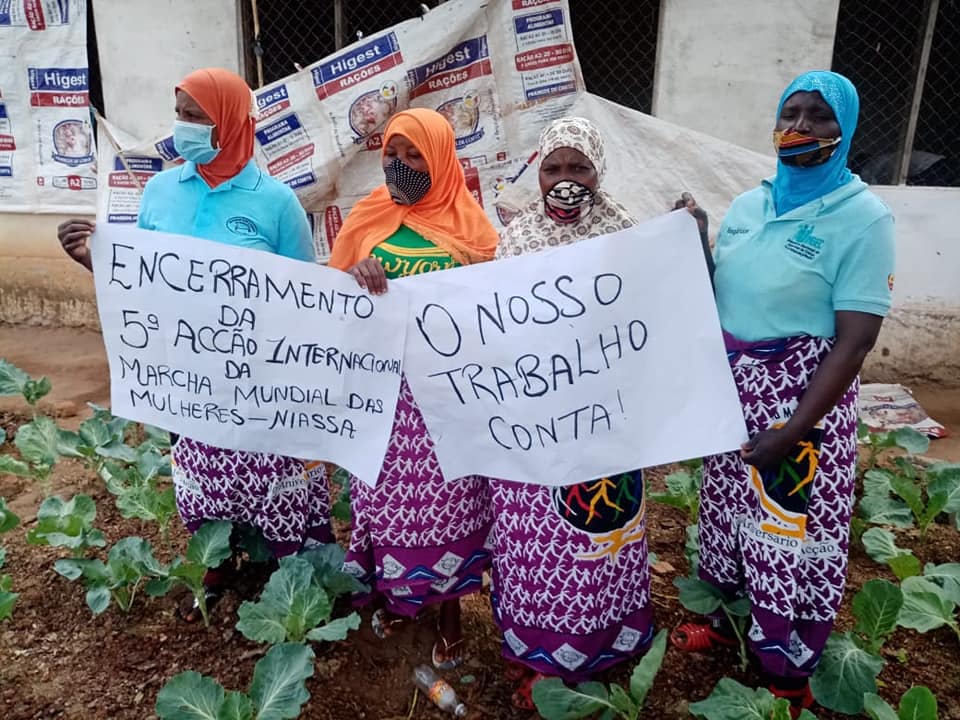
Niassa 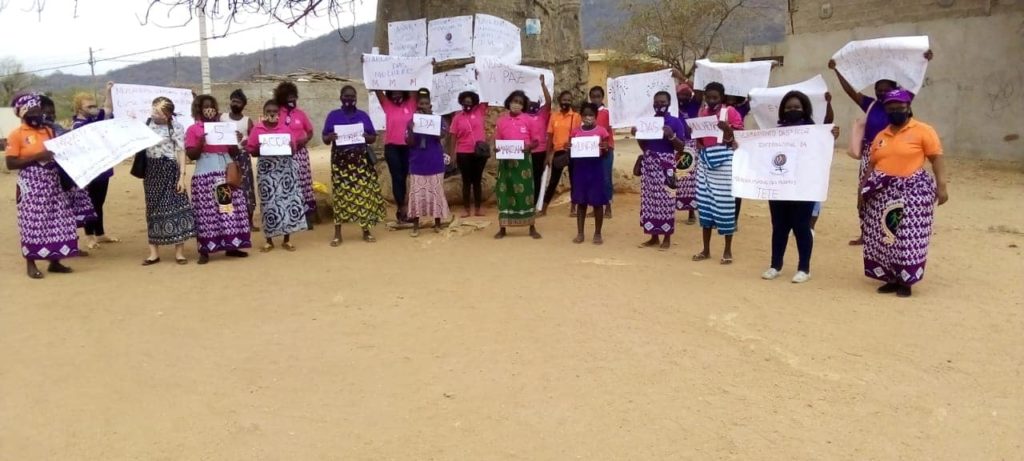
Tete
In Mozambique, women from Niassa and Gaza provinces held talks on agroecological practices to improve access to healthy food for their families and on how growing poultry and food contributes to women’s autonomy. They also demanded better working conditions and appreciation of women’s work. The women from Inhambane welcomed the closing of the 5th International Action of the World March of Women.
In Cabo Delgado, sisters held a moment of solidarity at the Centre for Agrarian Reception for internally displaced persons, victims of armed conflicts in the North of the Province, Namapala Village, Metuge. Cabo Delgado is a territory affected by armed conflicts and the plundering of its natural resources by transnational oil and gas companies. The women of Tete and Sofala, in their meetings, also said No! to the armed conflicts and the usurpation of their lands, and expressed their solidarity with the sisters of Cabo Delgado.
In Maputo, women and men of the Hixikanwe Association held a meeting with batucada, solidarity, memory of the victims of the conflicts. WMW Mozambique celebrated the memory of sisters living with HIV who stopped receiving their treatment during the COVID-19 pandemic. See more on MMM Mozambique’s Facebook.
Organizing and creating alternatives in Kenya
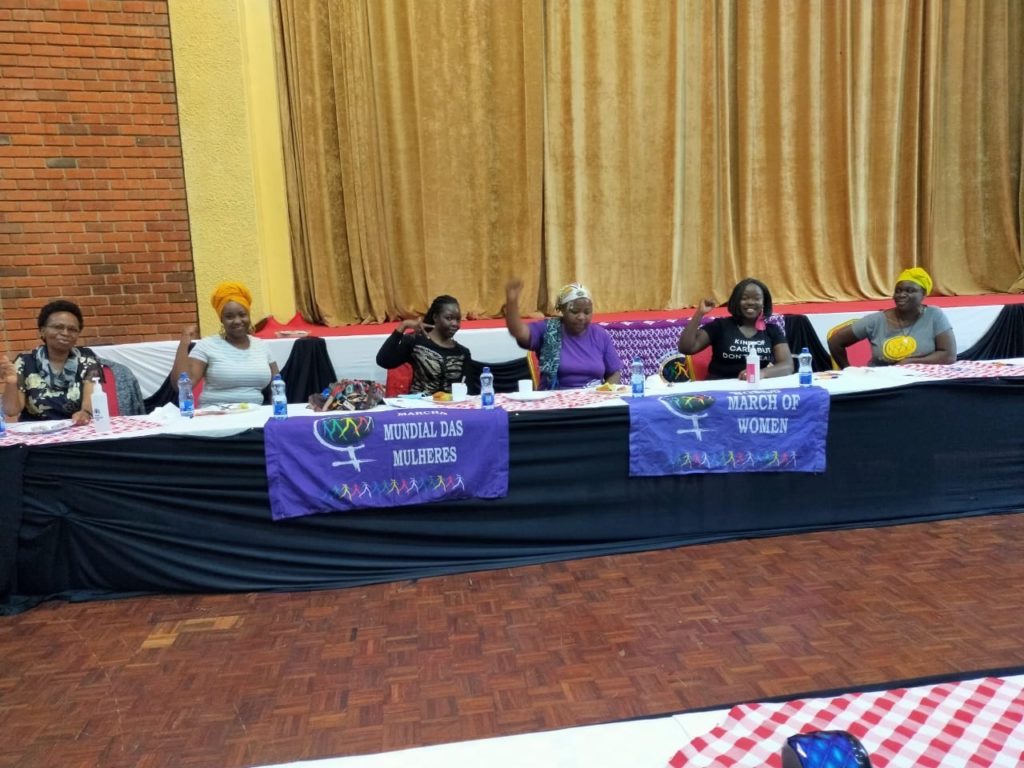
WMW Kenya organized, in partnership with the human rights organization Kenya Human Rights Commission, a meeting with kenyan women leaders. They discussed the action areas of the WMW and talked a lot about the impact of the transnational corporations and the militarization on women’s lives. Also about women’s work, migration and feminist alternatives such as agroecology. The meeting was to localize these themes and to organize the WMW’s activities around them.
Sefu Sanny, from Nairobi, sent a video in which she talks about her journey with the WMW and about the growing militarization in Africa. She recalls that the military took the power in Zimbabwe, Gabon, Sudan and now Mali. That in Somalia there are troops from the United States and even from Kenya. She talks about the violence generated by this, especially in the lives of women, who suffer most from abuse, rape, lack of access to food, and who are expelled from their places of life. They become refugees in other countries.
When the military takes power, she says, freedom of association and freedom of assembly ends. “Without these two freedoms one cannot say there is democracy or political freedom. This takes away the rights of the people, shrinks civic spaces in such a way that people cannot associate freely, meet freely, talk about their political rights. There are curfews. There are economic issues”. And there’s no freedom. Africa needs democracy, she says, “power for the people, by the people and with the people.
In Central Kenya, Margaret Ireri, special elected member of Nyandarua’s county assembly, talks about her work in organizing peasant women who use agriculture to feed their families. “We live in an area with a very high level of poverty and we cannot give up the fight for food security. We, as women, should be in the forefront to educate people on farming techniques to curb the problems such as diseases brought about by chemicalization of farming as we witness today”, she says.
Women and men lost their jobs during the pandemic. The lack of access to work and food has caused distress in families and violence. This is what Anne Wanjiku, coordinator of the WMW in Mathare, Nairobi, shares with us. “But we still cope”, she says, and calls for solidarity among women. “We come together for each other.” Comfort Achieng, also from Nairobi, made a video in which she talks about the voice that women gain when they are together — even to confront powerful transnational corporations that want to recolonize Africa.
In solidarity with Western Sahara
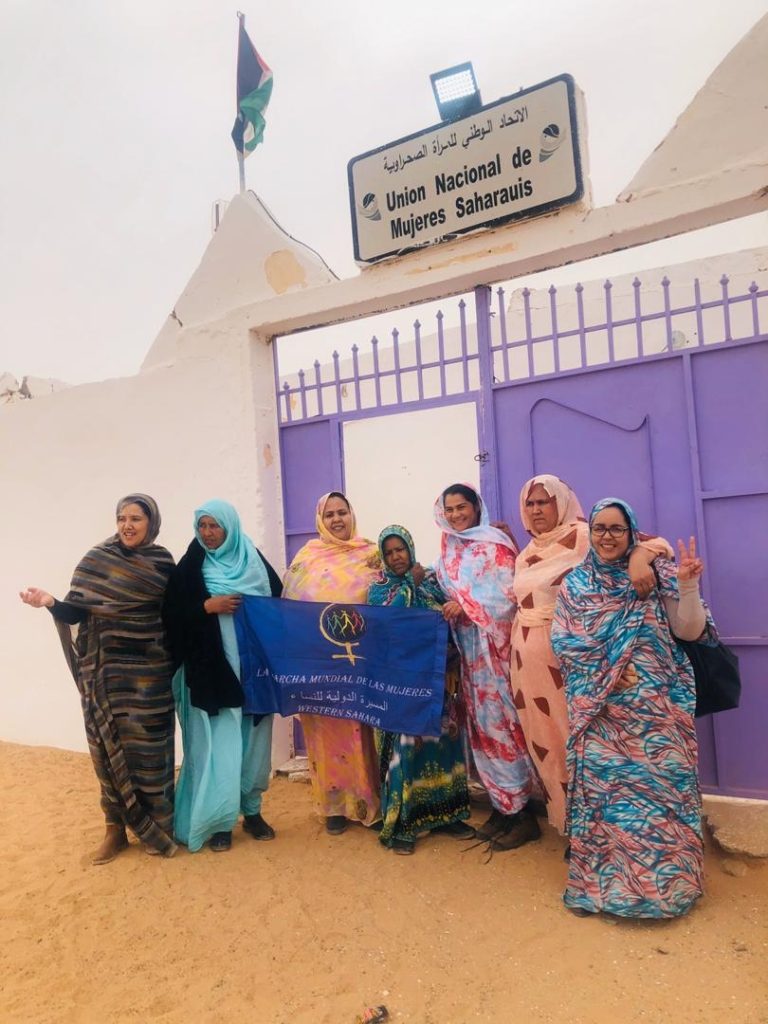
The meeting in Kenya decided that solidarity with Western Sahara, as a last colony in Africa, is a priority. This is important for all the World March of Women, so we join in solidarity.
October 9th, last Saturday, was the 10th anniversary of the establishment of the Gdeim Izik camp, in Western Sahara. The camp was created in protest against the continuous discrimination, poverty and human rights violations inflicted by Morocco on the Saharawi people.
The camp reached a population of 5,000 and became a huge demonstration for the independence of Western Sahara. It was dismantled by the Moroccan security forces on November 8, 2010 when 3,000 Saharawis were arrested.
On Saturday the Saharawi people once again held a demonstration against the theft of their lands by Morocco, in collusion with Spain. Once again the repression was great.
“On this 10th anniversary of Gdeim Izik, we have not forgotten our political prisoners in Moroccan jails”, the companions of the National Union of Saharawi Women, the WMW in Western Sahara, wrote us. And we say: we have not forgotten either! We are with you! Until we are all free! Freedom for Western Sahara!
#WesternSahara #SaharaLibre #GdeimIzik
